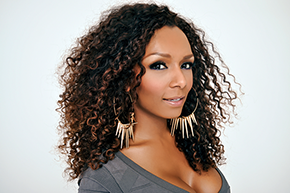Pride Month: Janet Mock
 In 2014, Janet Mock took over the media with her memoir Redefining Realness. The memoir debuted on the New York Times Bestsellers List, the first to be written from the perspective of a young trans person. As a writer, Janet has never intended to become an activist or an advocate—while those words are attributed to her, she found the need for stories to be told and didn’t expect that she would be the one writing them. As a woman of color, Janet brings attention to the notion that transgender women are often not part of the conversation for LGBT rights or for women’s rights as each group prefers to pass the responsibility to the other. As she has appeared in major media and taken on news anchors like Piers Morgan about the transgender experience, Janet has shown that she is not only a representative for the transgender population but for women of color as a whole. Janet previously worked in the media at People.com, as well as being a producer for the HBO documentary The Trans List. She began the Twitter campaign, #Girlslikeus, connecting thousands of trans women. As an advocate for transgender rights and the normalization of the transgender community, she created a column for Allure.com entitled “Beauty Beyond Binaries.” In 2017, she spoke at the Women’s March on Washington where she made the powerful statement, “I stand here today, most of all, because I am my sister’s keeper…Our approach to freedom need not be identical but it must be intersectional and inclusive.”
In 2014, Janet Mock took over the media with her memoir Redefining Realness. The memoir debuted on the New York Times Bestsellers List, the first to be written from the perspective of a young trans person. As a writer, Janet has never intended to become an activist or an advocate—while those words are attributed to her, she found the need for stories to be told and didn’t expect that she would be the one writing them. As a woman of color, Janet brings attention to the notion that transgender women are often not part of the conversation for LGBT rights or for women’s rights as each group prefers to pass the responsibility to the other. As she has appeared in major media and taken on news anchors like Piers Morgan about the transgender experience, Janet has shown that she is not only a representative for the transgender population but for women of color as a whole. Janet previously worked in the media at People.com, as well as being a producer for the HBO documentary The Trans List. She began the Twitter campaign, #Girlslikeus, connecting thousands of trans women. As an advocate for transgender rights and the normalization of the transgender community, she created a column for Allure.com entitled “Beauty Beyond Binaries.” In 2017, she spoke at the Women’s March on Washington where she made the powerful statement, “I stand here today, most of all, because I am my sister’s keeper…Our approach to freedom need not be identical but it must be intersectional and inclusive.”
As we wrap up with #PrideMonth, it is imperative to continue the dialogue, and work, that centers around making reproductive health accessible to trans men, non-binary, and genderqueer patients. Respecting pronouns, and gender neutral language is the first step towards inclusivity; and here at RHAP, we’ve taken that leap with our “Birth Control Across the Gender Spectrum” resource and our Contraceptive Pearl that was released this month. However, as our mission expresses making reproductive health care accessible to all, we want to make sure that includes decreasing mistreatment and misinformation by health care providers they get once they are in the exam room, not ostracizing them in family planning discourse amongst a myriad of other marginalizing factors.
